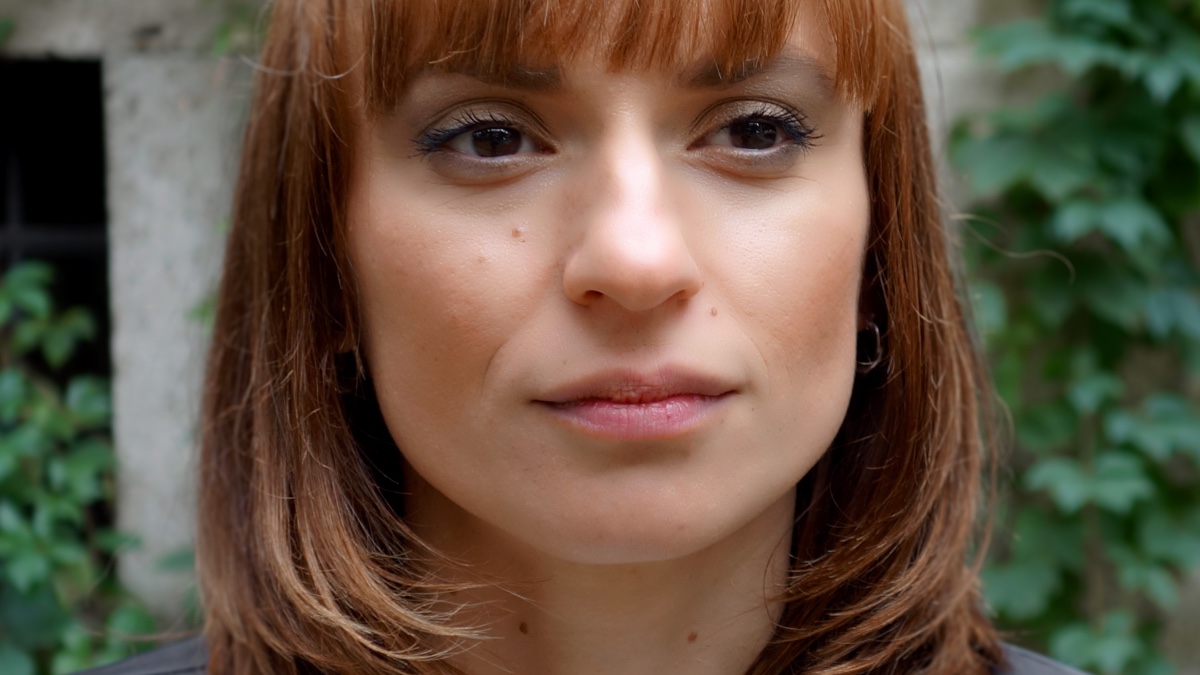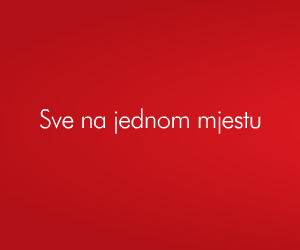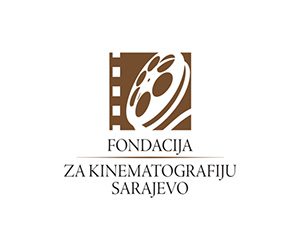
18/08/2020 Mediterranean film festival
Bojana Burnać: I love Mediterranean Film Festival because it is close to people
Bojana Burnać has a master's degree in photography, works as a director of photography, underwater cinematographer, director, screenwriter and educator. She is first female DOP in the history of Croatian cinematography who made a feature-length narrative film, ‘Slow Days’, directed by Matija Kluković. With her documentary ‘My Life without Air’ three years ago, she conquered the most prestigious film festivals such as Karlovy Vary and Hot Docs. This year she is a jury member at the 21stMediterraenan Film Festival. * Your directing debut ‘My Life without Air’ has been awarded at the world’s most prestigious festivals. Now, with a certain distance, how satisfied are you with the work done?The bar has been raised quite high, is it certain stimulation and also a burden for the future?
The whole experience of setting up the bar with this film taught me how many unstable and fragile terrains there are in our country, and if I want to set up a bar at some high point to withstand a heavy load, I first need to find a really good base where I can fix it, otherwise everything can turn out as a personal stumbling block.
‘My Life without Air’ is partly your personal story - a story you participate in. How do you choose topics?
First I must like to think about something, the topic has to be relevant and appealing to me in its potential significance. I think the only thing in life we have is time. The way we spend that time is our experience. The experiences we have shape our identity, and that is why it is important to me that I can accept the reality I capture as part of my life.
You filmed it for five years – what does your creative process look like?
Working on the film ‘My Life without Air’ was specific because I was hired as a professional free diver where I participated in a scientific medical research on the physiology of the human body in apnoea. In the initial phase of my work, I set certain shooting conditions in order to achieve an authentic image of the main character of the film, Goran Čolak, a world record holder in scuba diving. In order to technically perform this with a camera, I had to be well trained. Also, my experience in scuba diving was a tool for understanding Goran and a way to find the right questions for him as a highly introverted man.Due to the needs of recording, I went scuba diving. This led me to speleological diving, so I finished school for speleologists.So I integrate this creative process of working on film further into my life and new works.
You are the first female cinematographer in the history of Croatian cinema that has shot a feature film. What does this say about Croatian cinematography and generally about women in film in our parts?
This shows that Croatian cinematography has made great progress lately, and women in general and in film are still in the same place.
How did you choose this profession? What attracted you to filming?
As a child, I fantasised about getting to know the space and the people I saw in the movies.The camera seemed to me like a kind of a passport with which I could go to places and get into people’s stories, which would otherwise be inaccessible to me. I am grateful to all the people who were in front of my camera because they enriched my life with their experiences. There is also something in the process of presenting emotions through the image and my need to react to the world I live in. The shooting matches my authentic state of mind.
Abroad, there is always an emphasis on the fact that the women in the film are ‘neglected’ and even paid less than their male colleagues. What do you think is the case in our parts and how satisfied are you with the status and attitude towards women in the film in general? And is there any need to talk about it?
It is obvious that the status of women in the film is seen as some accidental cases, often in a way as if they happened by chance.When we talk about it, then we question what the case is like here or there, as if everything is still in the phase of study before a decision could be made.I remember the International Conference on the Position of Women in the Film Industry held in Zagreb. Important women awarded for their work on film were the speakers on the conference, and when talking about achieving their business success, they talked about how they stopped putting on make-up and how they changed their style of dressing, or how they play the card of fear, in order to be accepted by their male colleagues. Their success becomes questionable. This can also be achieved with a case of beer, if a woman drinks the same or more bottles of beer than her male colleagues she is immediately accepted into the camera crew. The question we are talking about comes to me when we talk about the discrimination of women, and what kind of people are those in front of whom one can play that game and accomplish their goal? It is absurd to talk about it at all. We have separate toilets, and the way things are we could also have separate buses. Some way to fight this is needed. The voice I chose is my continuous film work.
The project you are currently working on?
I am currently working as a cinematographer on the new documentary “All the Hassan’s Wars” directed by Robert Bubalo and Olimp production.It is a film whose main character is the award-winning Croatian journalist Hassan Haidar Diab, who dedicated his work to the fight against terrorism. Besides this, I’m having fun writing a screenplay for a new film.
We came out of the quarantine that affected the entire world. It is also quite uncertain what will happen next.Many were forced to take a break and use the time for themselves.How has all this affected you?
Quarantine postponed the planned filming of the documentary in Beirut, which is still uncertain due to the new situation in that city.But the isolation from people and social events is not foreign to me, so I got valuable time to calmly observe the situation.
What did you miss the most from the ‘normal’ world?
I missed abnormal people.
What scenario do you think is more likely, shall we return to ‘normal’ or a new different world await us?
I hope for something normal in this one and only world we have.
At the 21stedition of the Mediterranean Film Festival, which is going online, you are one of the jury members. And you have previously participated at the festival as an author. What do you know about the MFF and what prevailed in accepting this task?
I love MFF because of the good people who create it and strive to make the festival close to everyone.When my colleagues from the MFF invited me to be on the jury, it was an honour for me, rather than a task!
Recommendations for a good documentary, a series ... something that has fascinated you lately or a classic that you always return to?
The TV series Pose thrilled me with its cast and the team of people behind that project.It talks about many things through the perspective of the experience of trans people, who are not really trans, because they are not in transition from one to another, but are always one.It’s like getting stuck in linguistic ingenuity when we can’t come up with a better word to describe their self experience. Things are similar with women.
* Interview from Večernji list



